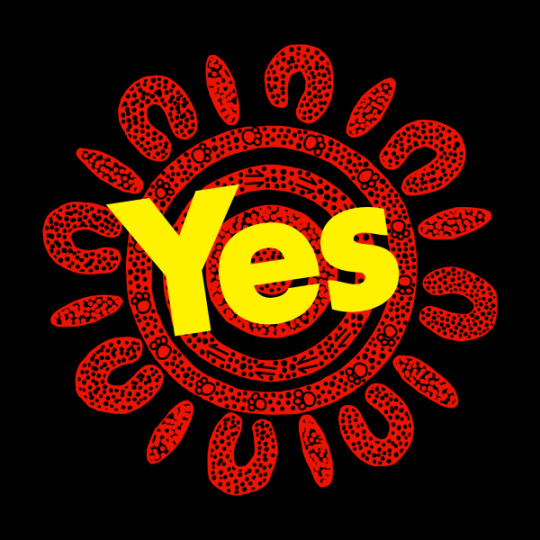#yes23au
Text
youtube
#voice to parliament#yes23#yes23au#indigenous voice to parliament#the voice to parliament#referendum#auspol#voice referendum#Youtube#vote yes
685 notes
·
View notes
Text
i am so ashamed to be australian tonight. i understand the reasoning behind the progressive "no" vote, i do, but we cannot pretend that the majority of the "no" vote is progressive when racist white australians have made it clear they believe in the equality pie fallacy. this cannot be a win for first nations peoples, and i sincerely hope progress can be made despite this result.
62 notes
·
View notes
Text
Let's not screw this up, eh?
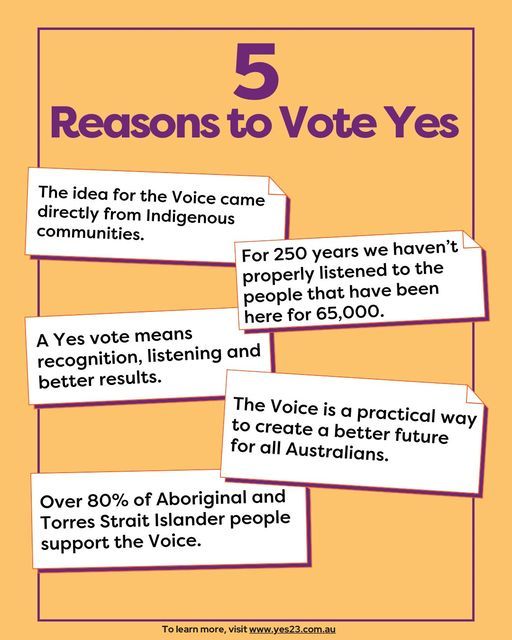
#yes23#yes23au#vote yes#voice to parliament#auspol#referendum#australian politics#i already voted because i'm working#so i am disappointed i missed out on a democracy sausage#i don't want to be disappointed by the result too#but referendums do have a tendency to be lost in aus...
66 notes
·
View notes
Text
Explaining why the lack of detail on the Voice is not a bad thing
One of perhaps the only valid arguments from the no camp against the referendum is that there is a lack of detail. This is true, however this is not a bad thing.
Here is the proposed constitutional change:

Pay attention to that last point, it's important.
That last point means that parliament is making up the structure of how the Voice works. It is making up 'its composition, functions, powers and procedures.' Everything about the Voice will be instituted by parliament at a later date, after the nation has agreed that they want the idea on a Voice.
We are voting on an idea, and that's okay. The detail in this place can change and this is a good thing. The lack of detail means flexibility in the Voices makeup, and is not a liability like the libnats would have you believe.
Let me explain further. In the off chance, the unlikely off chance, that something goes wrong with the Voice once it's been put into place (not that I think it will) then we have a safeguard, as in it can be reformed. They can change up how often they meet, the funding, the procedures, anything, if something goes wrong. This is a safeguard mechanism not a weakness.
Since we are voting on a concept, we are not voting on detail we have the reassurance that the Voice can be reformed if needed.
This is not a weakness, this is a strength.
Don't let the no camp twist a positive into a negative.
42 notes
·
View notes
Text
I just voted YES for recognition of indigenous people in the Australian Constitution and providing them with a Voice to Parliament

47 notes
·
View notes
Text
(Australians please read this) The Indigenous Voice to Parliament
Okay, so the basic idea of the Voice to parliament is adding a section to the Constitution (the laws that can't be changed except with a referendum) so that there is an Indigenous Advisory Board. This is something that First Nations people want and need, and the idea originated in the Uluru Statement From the Heart (https://ulurustatement.org/the-statement/view-the-statement/ it's less than a page long).
These sorts of advisory boards aren't weird. Australia has over 110 of them for things like blood borne viruses and STIs, each containing qualified experts. Previously several attempts have been made to start Indigenous Advisory Boards but they've all been disbanded by successive governments. This is why we need to change the constitution. No matter who is in power, there will always be a group of elected Aboriginal & Torres Strait Islander people to give advice pertaining to their needs. (https://www.abc.net.au/news/2023-10-04/how-different-would-the-voice-be-from-other-advisory-bodies/102880116)
One of the no side's main arguments is that there aren't any details about the Voice. This is actually a good thing. The power to decide how it works will be in the hands of the parliament, meaning our democratically elected representatives can vote on how the Voice works. The Voice also will not have veto power, not will it add unnecessary and costly beaurocratic delays to government processes. It will simply give advice and make recommendations pertaining to First Nations issues.
The Government doesn't even have to listen to the Voice, although public records will be made of who agrees and disagrees with them. The public then has the power to cast scrutiny on whoever they think is in the wrong (which will probably be the politicians).
Reconciliation Australia's polls have found that 86% of Aboriginal and Torres Strait Islander people believe the Voice is important. (https://www.reconciliation.org.au/reconciliation/support-a-voice-to-parliament/)
Right now Indigenous Australians aren't in a great place. They are the most incarcerated race in the entire world compared to their total population (https://theconversation.com/factcheck-are-first-australians-the-most-imprisoned-people-on-earth-78528). Aboriginal males have a 40% higher suicide rate than non-Aboriginal males. Right now our government is failing to address these concerns, and they've been failing for the past 50 years. A permanent advisory board composed of Indigenous leaders elected by Indigenous Australians can best represent their interest and will ultimately save lives.
On a final note, this affair has seen a huge amount of misinformation and conspiracy theories, with wild claims that Indigenous Australians want us to pay rent or bypass our democracy. These claims are wildly untrue. (https://www.theguardian.com/australia-news/2023/oct/12/indigenous-voice-to-parliament-referendum-misinformation-fact-checked). Also note that in Australia it's legal to lie in political advertisements and campaigns (https://www.sbs.com.au/news/article/why-is-it-legal-to-tell-lies-during-the-voice-referendum-campaign/2wxd2gfec), so take any extremist, fear-mongering claims with a grain of salt. No side campaigners also claim that "if you don't know, vote no". This is absurd. If you truly want to excercise the power of democracy that you (or your parents) are extremely lucky to have, then please do your research and come to an informed conclusion.
Further reading -
Every Australian household has received a booklet containing information about the Yes side and the No side. I would recommend reading The Guardian's annotated versions of these, where they elaborate on certain points and call out incorrect or disputed claims.
https://www.theguardian.com/australia-news/ng-interactive/2023/jul/20/the-vote-yes-pamphlet-referendum-voice-to-parliament-voting-essay-aec-published-read-in-full-annotated-fact-checked
https://www.theguardian.com/australia-news/ng-interactive/2023/jul/20/the-vote-no-pamphlet-referendum-voice-to-parliament-voting-essay-aec-published-read-in-full-annotated-fact-checked
The Guardian and their independent journalism are honestly a tremendous resource, providing free and accurate information about the latest developments and clearly explaining everything for those who haven't kept up.
I also urge everyone to read the Uluru Statement From the Heart, which Prime Minister Anthony Albanese has committed to in full.
Thanks for reading, hopefully I've helped clarify what the referendum is about, and maybe helped you make your decision. 🖤💛❤️
15 notes
·
View notes
Text
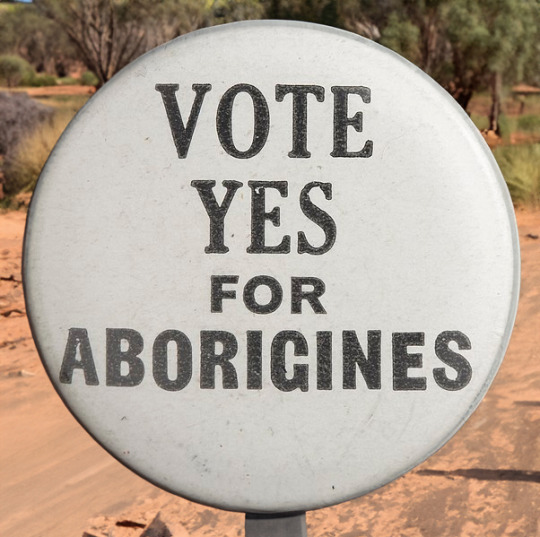
In 1967, more than 90% of Australian united to vote YES and count Indigenous and Torres Strait Islander peoples as part of the population! They ask us once again to vote YES in 2023
3 notes
·
View notes
Text
Today I’ll be voting yes. Yes, I do believe in a constitutionally enshrined Voice to Parliament for First Nations people. That is my personal opinion. It belongs only to me. I’ve come to this decision after a lot of listening and learning generously shared by friends and people I respect as advocates. What strikes me most is the explanation that they are ‘already living in no’ and it’s clearly not working.
In my view, as someone who knows something of what it is to live on the margins, albeit not for the colour of my skin, anything that prioritises, values and gives agency to lived experience is a good thing. That is how I interpret what the Voice is doing. I’m ’m sharing this not because I want to tell YOU how to vote but because I believe in transparency. In using my voice as a white woman with privilege to lighten the load if I can.
I can’t imagine how exhausting and traumatising the last few months have been for First Nations people on both sides of the aisle. It’s entirely unfair that your lives are used as political footballs. It’s insidious that advocating for yourselves is an experience so stained in racism and bigotry. I’m sorry that this is where we are.
I hope that if the Voice goes through, it is a legitimate step to better. That our government doesn’t tick the box and consider the work done. 80% of First Nations people want to move forward with the Voice. By simple maths, that means 20% don’t. And you know what? That’s valid.
I spend entirely too many minutes in my life painstakingly explaining that disabled people are not a monolith or a hive mind. No group of human beings are. And that’s OK. I want to acknowledge the validity of the progressive no and the Blak Sovereign Movement and throw my support behind the fact that this conversation should not end with the Voice. It should continue to treaty and sovereignty. This should only be the first Yes.
With that in mind, I like to think of advocacy and politics as a bus ride from one place to another. It’s a metaphor that always helps me make decisions. You hop on the bus to move away from where you are. If the bus doesn’t get you precisely where you want to go, you ride it as far as is useful and then you change buses. There’s no rule that says you have to stay on. The only point is to actually go somewhere. Move forward.
Given we are all being asked to get on the bus, when the other option is to stay where we are in a place I think we can all agree is not working, and where some pretty vile people who want to dismantle rights everywhere have decided they want to call home, I think we should get on the bus.
Once the bus has moved us away, then we can look at other modes of transport, and trip details. But if we stay where we are, then we’re stuck. We get lost. The bad guys win. And even the people who wanted us to travel some other way lose. Because we go nowhere. Today I have a bus to catch. I’ll save you a seat?
#for my Aussie followers#yes23#yes23au#australia#australian#the voice to parliament#the voice referendum#auspol
4 notes
·
View notes
Text
I can now reflect upon the Voice to parliament proposition, and the failure of the Yes campaign.
I was and still am an advocate for the Voice, and have been ever since engaging with the Uluṟu Statement of the Heart and the invitation it gave for further reconciliation, and the prospect of helping close the gap between the life outcomes of indigenous Australians and the wider population.
Early on I sought to do my little bit in the promotion of ideas by sharing content for the Yes case on my social media, because I saw this referendum as a challenge for Australia. I felt that the default electoral position was No, and that work needed to be done to move it to Yes.
Work, effort and engagement is what many people needed to do. With most people suffering under cost of living pressures and the other concerns of life, it was always going to be a huge challenge for the importance of this proposition to be apprehended and understood.
Everyone has their own levels of capacity, and my own activism was limited. I admire and thank everyone on the Yes side who got out there during the campaign; it was a grassroots phenomenon. Even if I had the time, I couldn’t have done so myself as I would have become too exhausted. I decided to withdraw into neutrality, through my work with the AEC on election night. Hence my silence on this issue in the period between the writs and the cessation of my AEC employment.
I am deeply disappointed by the referendum result, but as a fan of democracy I accept it. On referendum night I saw the results with my own eyes, comparing the size of the piles of Yes and No votes. It was pleasing to see very few informal votes; most people decided to cast their vote without wasting this precious opportunity.
It is my perception that:
• The Yes campaign was largely positive, leading the idea of challenge and change.
• The No campaign was in the business of casting doubt and muddying waters, in the absence of strong argument.
• It was right for the referendum to be called. The work had been done for many years, and it had to now go to the people. Some are saying that the PM should resign for its failure, which is the same as saying Menzies should have resigned for the failure of his 1951 anti-Communist referendum.
• Key arguments of the No campaign (not enough detail, it’s divisive, if you don’t know vote no) were untrue. As a teacher, I find the “if you don’t know, vote No” argument appalling, because it’s a call for wilful ignorance, and for not facing challenge.
• Disinformation and misinformation campaigns are growing, and they appear to be Trumpy imports from overseas. Claims that the Voice was a land grab, a UN/WEF conspiracy, and that the AEC is corrupt are wrong and ridiculous. Dis/misinformation worries me and I think we need to fight it.
It is not for me to draw conclusions as to what was in the hearts and minds of Australians when they voted.
But I believe the long walk towards reconciliation and closing the gap is not over.
I’m not ok with the vastly different life outcomes between first Australians and the rest of us. I’m not ok with the concept that colonisation had nil affect on indigenous Australians. I am certainly not ok with racism, which does exist, and which claims that people behave in certain ways due to some innate supremacy or deficiency.
Research always shows that when you empower people, when you give them a say, a voice, it improves things.
It was a modest proposal, but it failed.
What’s next?
I hope that the pro-Voice elders, people, academics, Australian students who did the work, who walked the walk, can recover and revitalise and continue, with hope, and that the younger generations can keep holding the flame.
I wait to see what the politicians, from both sides, offer next. Whatever happens, the referendum outcome will be something for everyone to refer back to.
If you’re still here, thanks for reading. And make sure you read Thomas Mayo’s article here:
🇦🇺 🖤❤️💛
1 note
·
View note
Text
Alright, lads, I have just come back from the Vote.
Now let us all huddle together, not too close because it's annoyingly warm today, and hope that 'Yes' wins.
#yes23#yes23au#indigenous voice to parliament#voice to parliament#auspol#the voice to parliament#vote yes
11 notes
·
View notes
Text
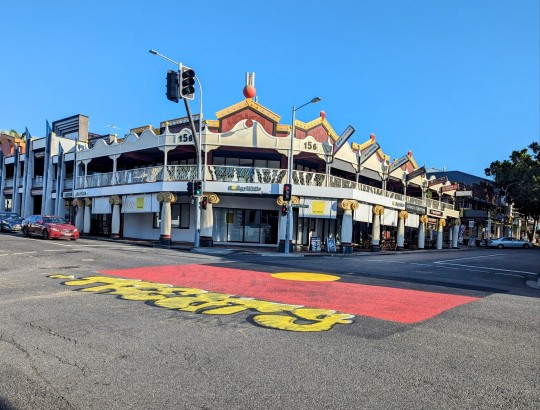
In the wake of the no vote to the voice referendum - TREATY
0 notes
Text
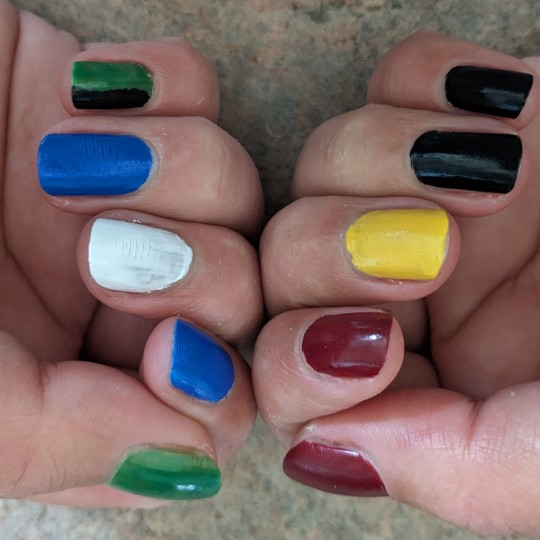
About to head off to my first shift on How to Vote
It's not that hard, folks:
Vote yes
#auspol#referendum#the voice to parliament#indigenous voice to parliament#voice to parliament#vote#vote yes#yes23au#yes23
0 notes
Text
Number of times I've welled up because of the referendum
Today (as at 11am) - 5
Yesterday - 3
This week - at least a dozen?
0 notes
Text
So in conclusion:
Peter Dutton has jumped from a non constitutionally enshrined voice as an alternative to the Voice, to just elect him as leader next election, because that apparently will work just as well
#auspol#ausgov#australia#the voice#voice#voice23#yes23#yes23au#fuck peter dutton#peter dutton#libnat#liberal nationals#the coalition#labor
15 notes
·
View notes
Text
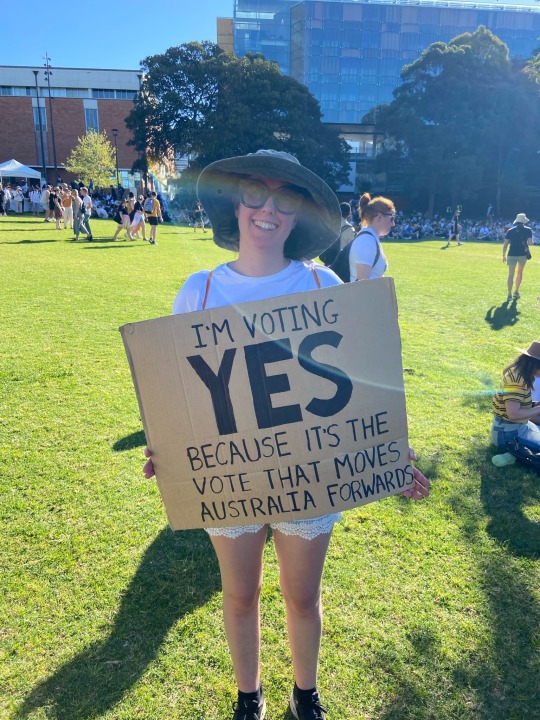
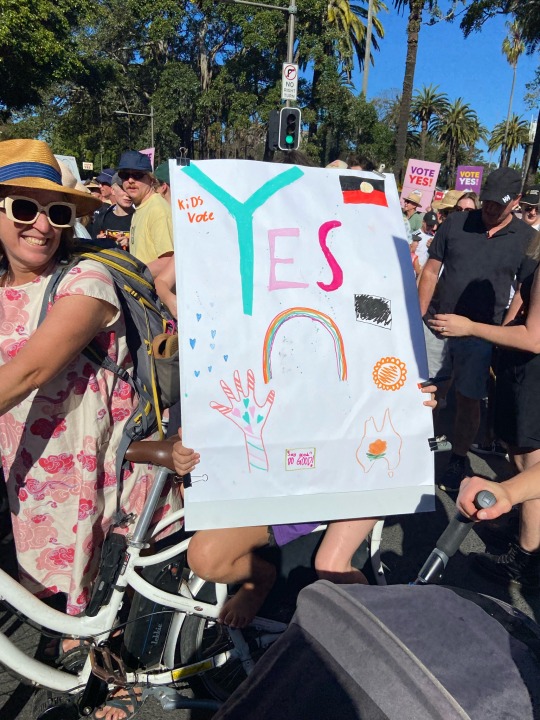
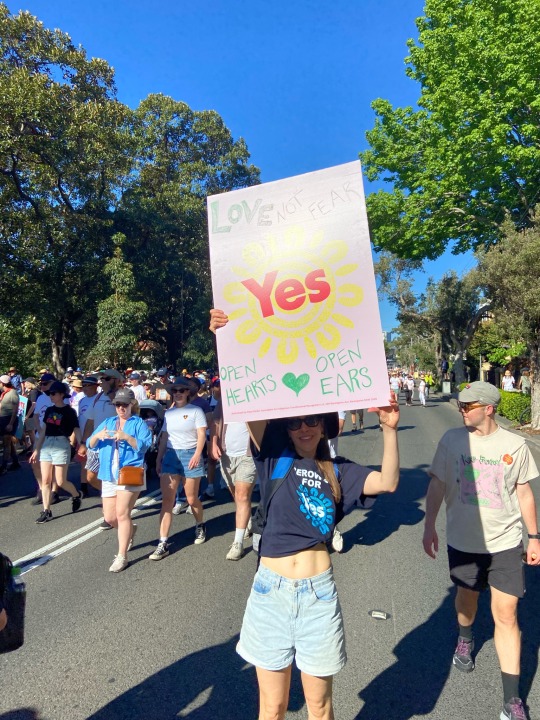
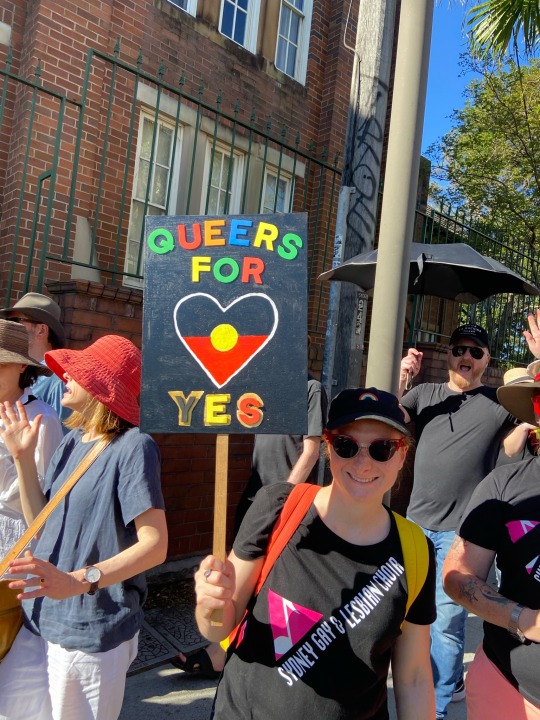
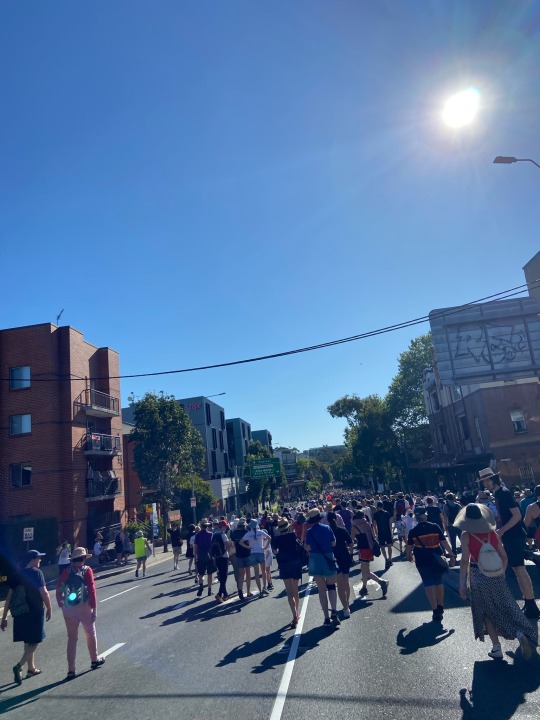
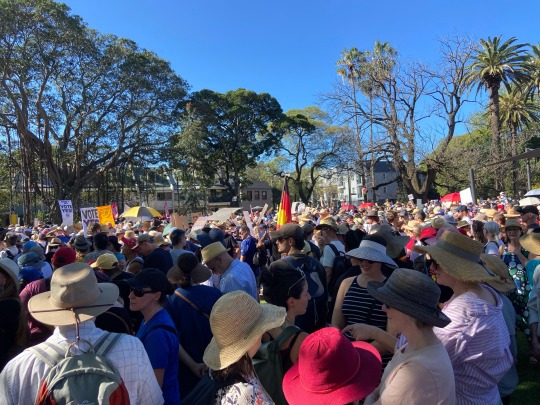
Australia is having a referendum to give Indigenous peoples recognition in the Constitution and a voice to parliament! I will be voting YES!
24 notes
·
View notes
